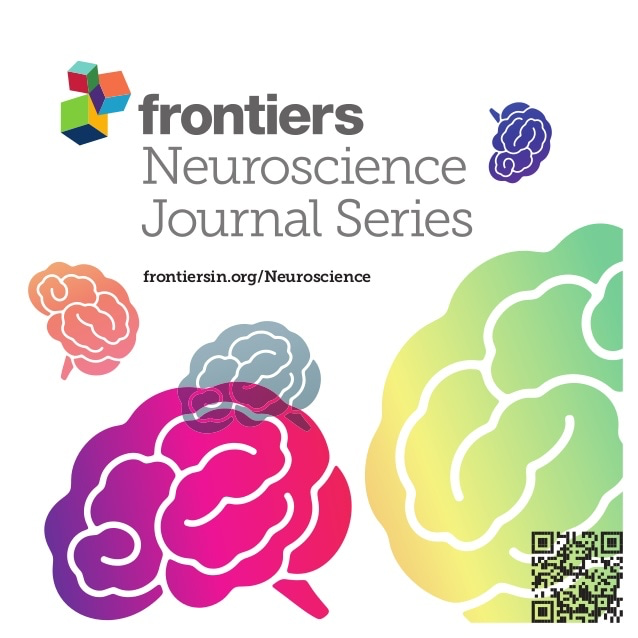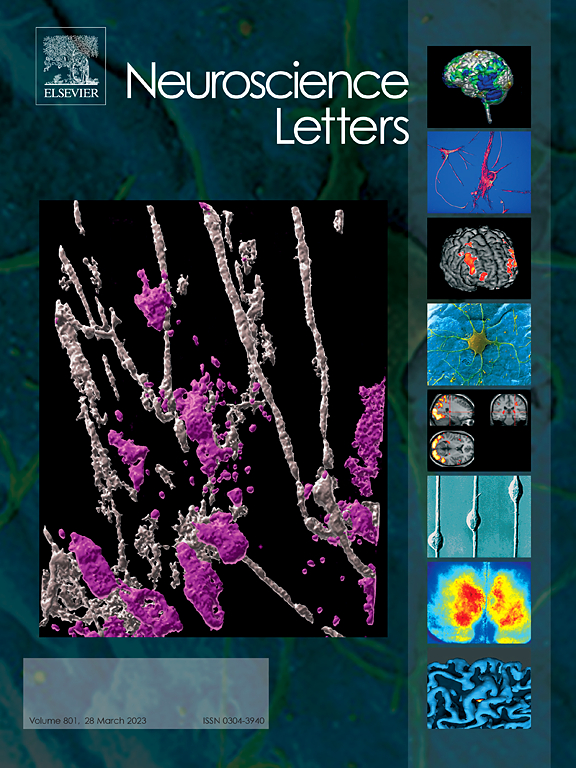GABA system
How to submit an article:
- Registered users can submit any published journal article that has a unique DOI (Digital Object Identifier) name or link to Research Hub.
- For example, you can paste the full DOI link:
https://doi.org/10.1109/5.771073or just the DOI name:10.1109/5.771073into the field above and click submit. - The person who is first to submit a valid article to Research Hub will forever be credited for it, and every article submission earns you +6 Research Points.
Related Topics
Published research studies are articles that present the findings of original research that has undergone a peer-review process and has been made publicly available in scholarly journals, books or other media.

Regulation of GABAA and 5-HT Receptors Involved in Anxiolytic Mechanisms of Jujube Seed: A System Biology Study Assisted by UPLC-Q-TOF/MS and RT-qPCR Method
2020 Oct 15 Frontiers in Pharmacology Chen L, Zhang X, Hu C, Zhang Y, Zhang L, Kan J, et al.
Experimental Study Serotonin Anxiety GABA system Suan Zao RenJujube seed extract has been found to primarily reduce anxiety by regulating the GABAergic and serotonergic synapse pathways, specifically modulating GABRA1, HTR1A, and HTR2A.

GABA and 5-HT Systems Are Involved in the Anxiolytic Effect of Gan-Mai-Da-Zao Decoction
2019 Jan 22 Frontiers in Neuroscience Chen HS, Gu LJ, Yang YX, Guo JY
Animal Study Anxiety GABA Serotonin Gan Mai Da Zao Tang GABA systemGan Mai Da Zao decoction has shown comparable anxiolytic effects to Diazepam and Buspirone in mice, possibly regulated by serotonin and gamma-aminobutyric acid receptors.

Acupuncture suppresses intravenous methamphetamine self-administration through GABA receptor’s mediation
2018 Jan Neuroscience Letters Choi YJ, Kim NJ, Zhao RJ, Kim DH, Yang CH, Kim HY, et al.
Results of this study have shown that acupuncture at HT7 suppressed methamphetamine self-administration through GABA receptor system, suggesting that acupuncture at HT7 can be a useful therapy for the treatment of methamphetamine abuse.
Animal Study GABA system
Acupuncture at HT7 suppresses morphine self-administration at high dose through GABA system
2014 Jul Neuroscience Letters Lee BH, Ku JY, Zhao RJ, Kim HY, Yang CH, Gwak YS, et al.
Acupuncture at HT7, but not at control acupoint, LI5, suppressed spontaneous morphine-taking behavior significantly. In addition, the effect of acupuncture was blocked by both GABA receptor antagonists. The results of this study suggest that acupuncture at HT7 suppresses morphine-taking behavior through the mediation of GABA receptor system.
Network Pharmacology GABA Acupuncture GABA systemResearch insights are moderated by the Research Hub team and offer an at-a-glance overview of interesting research findings.

2020 Frontiers in Pharmacology
Jujube seed extract has been found to primarily reduce anxiety by regulating the GABAergic and serotonergic synapse pathways, specifically modulating GABRA1, HTR1A, and HTR2A.
Experimental Study Anxiety Serotonin Suan Zao Ren
Regulation of GABAA and 5-HT Receptors Involved in Anxiolytic Mechanisms of Jujube Seed: A System Biology Study Assisted by UPLC-Q-TOF/MS and RT-qPCR Method
Chen L, Zhang X, Hu C, Zhang Y, Zhang L, Kan J, et al.

2019 Frontiers in Neuroscience
Gan Mai Da Zao decoction has shown comparable anxiolytic effects to Diazepam and Buspirone in mice, possibly regulated by serotonin and gamma-aminobutyric acid receptors.
Animal Study Anxiety GABA Gan Mai Da Zao Tang Serotonin
GABA and 5-HT Systems Are Involved in the Anxiolytic Effect of Gan-Mai-Da-Zao Decoction
Chen HS, Gu LJ, Yang YX, Guo JY
Review Articles
Review articles summarise and critically evaluate the current state of research on a specific topic or field by synthesising multiple primary research studies.
Clinical Trials
Clinical trials are research studies that involve people and are conducted to evaluate the safety and efficacy of new treatments or interventions, such as drugs, medical devices, or behavioural therapies.
Study Protocols
Published study protocols are detailed plans that outline the objectives, methodology, statistical analyses, and organisation of a research study that have been made publicly available for others to review and use as a reference.
Presentation Slides

Experimental Study
Jujube seed extract has been found to primarily reduce anxiety by regulating the GABAergic and serotonergic synapse pathways, specifically modulating GABRA1, HTR1A, and HTR2A.
Chen L, Zhang X, Hu C, Zhang Y, Zhang L, Kan J, Li B, Du J

Animal Study
Gan Mai Da Zao decoction has shown comparable anxiolytic effects to Diazepam and Buspirone in mice, possibly regulated by serotonin and gamma-aminobutyric acid receptors.
Chen HS, Gu LJ, Yang YX, Guo JY
Executive Summary
Write an executive summary in the form of a blog article on the topic of "Research into Chinese medicine treatment for GABA system" summarising the research below and using language that can be easily understood by patients and avoiding medical jargon using a professional and caring tone of voice.
Write an executive summary in the form of a blog article on the topic of "Researched Chinese medicine treatments for GABA system" summarising the research below in an objective and easy to understand way, and using language that can be easily understood by patients. Group the article into Chinese medicine treatments first, followed by nutrition and other treatments. Avoid using medical jargon and use a professional and caring tone of voice.
Write me a concise but easy to understand executive summary on the topic of "Chinese medicine treatments for GABA system" based on the following research that I will give you. Your summary should be 2 paragraphs long in Australian English spelling and include references to the studies.
A Experimental Study published in 2020 in the journal Frontiers in Pharmacology found that Jujube seed extract has been found to primarily reduce anxiety by regulating the GABAergic and serotonergic synapse pathways, specifically modulating GABRA1, HTR1A, and HTR2A. The research relied on a system biology method supported by Ultra Performance Liquid Chromatography Quadrupole Time of Flight Mass Spectrometry (UPLC-Q-TOF/MS) and Real-Time Quantitative Polymerase Chain Reaction (RT-qPCR). Initially, 35 phytochemicals were identified from the Jujube seed extract, which related to 71 anxiolytic targets. Further investigations, including protein-protein interaction, gene cluster, Gene Ontology, and Kyoto Encyclopedia of Genes and Genomes (KEGG) pathways analyses, were conducted to identify the anxiolytic mechanisms of the extract. The results highlighted that the main anxiolytic mechanisms of the Jujube seed extract were linked to the regulation of serotonergic and GABAergic synapse pathways. The extract's impact on the mRNA expressions of multiple gamma-aminobutyric acid type A (GABA) and serotonin (5-HT) receptors subtypes was verified in human neuroblastoma cells. Surprisingly, the extract (250 μg/mL) not only amplified the mRNA level of GABRA1 and GABRA3 alongside HTR1A, HTR2A, and HTR2B in untreated cells but also suppressed the overexpressed mRNA of GABRA1, GABRA2, HTR1A, and HTR2A in stress-induced cells.
A Animal Study published in 2019 in the journal Frontiers in Neuroscience found that Gan Mai Da Zao decoction has shown comparable anxiolytic effects to Diazepam and Buspirone in mice, possibly regulated by serotonin and gamma-aminobutyric acid receptors. The mice were given the Gan-Mai-Da-Zao (GMDZ) decoction orally at different concentrations for a week, with Diazepam and Buspirone serving as positive controls. Anxiety-level testing was conducted using a combination of the elevated plus-maze, light/dark box, marble burying, open field, and rota-rod tests, providing a comprehensive assessment of the decoction's effects on mice. Furthermore, the anxiolytic effects that GMDZ induced in the mice were challenged by the application of Flumazenil, a gamma-aminobutyric acid-A receptor antagonist, and WAY-100635, a serotonin-1A receptor antagonist. They found that the effects were successfully inhibited, indicating that the mechanism of action of GMDZ could be linked to both the serotonin and gamma-aminobutyric acid receptors in the nervous system, thereby reducing anxiety-like behavior in mice.
Moderation Tools
Topic
Sign In
Users not signed in are limited to viewing the 5 most recent items of content.